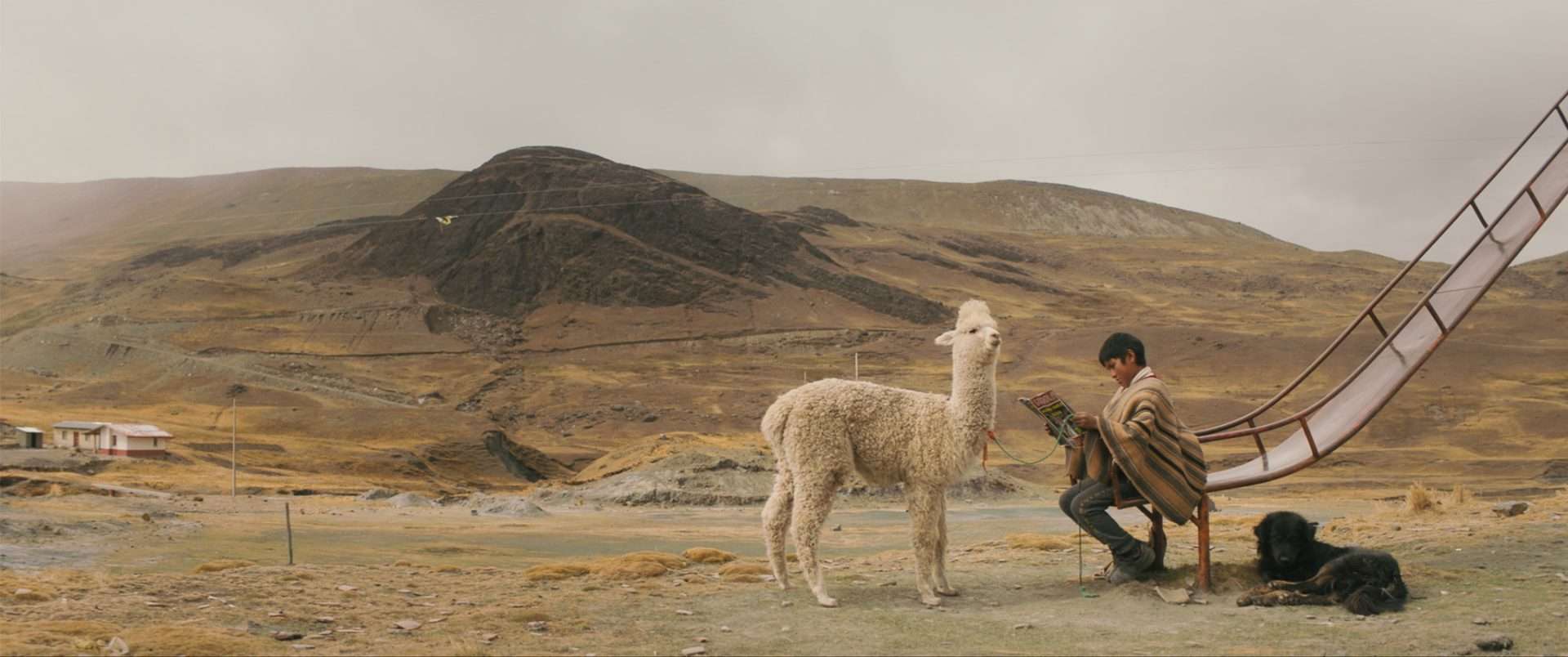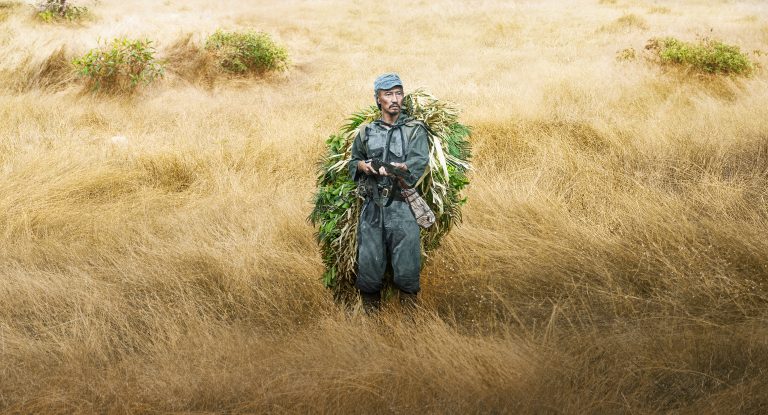Franco García Becerra’s “Through Rocks and Clouds” (Original Title: “Raíz”) is a socially charged drama wrapped in the endearing package of a coming-of-age film. It follows 8-year-old shepherd boy Feliciano from a remote region of the Andes. He spends most of his days herding sheep. In their thinly populated land, he has only two constant companions – Ronaldo, a young alpaca, and Rambo, an old dog. So, he shares all his thoughts and desires with them.
Feliciano adores Football and hopes to see his country – Peru’s national team – play in the 2018 FIFA World Cup. He keeps talking with his silent companions about this sport and shares his fascination with it. Not just that, he even cuts his alpaca’s hair to match a player’s haircut. While holding onto this passion, he learns about a harsh truth he and the locals will have to face. Their environment suffers the threat of contamination because a mining company plans to get control over their land.
Gradually, the film reveals these themes of greed and exploitation along with the system’s utter disregard for the locals. Considering the actions of greedy capitalistic forces, it does not come as a shock or a surprise. We have all encountered stories like this in some part of our lives, where over-consumption begets the natural flow of life. To convince us of this threat, the film tries to present the austere lives of the locals besides the innocence of this young child.
Much of the film’s duration is spent on building this sheer contrast where innocence is confronted by an inevitable evil. We see Feliciano’s strong bond with his Alpaca blossom. Simultaneously, we see his joyous life with local kids slowly wither because of differences in principles. Felicio’s parents subtly imbibe their understanding of the perseverance of the land. He grasps the morsels of wisdom he overhears through their conversations. But he finally senses the gravity of this situation due to a personal tragedy.

One day, Ronaldo and other alpacas suddenly disappear from their land. It leaves a hole in Feliciano’s life. The authorities refuse to help locals in this matter – even after their multiple requests. While the search continues, the townspeople join hands against the company that is planning to snatch the right to their land. Through their struggle, we get to witness the beginning of a classic David vs Goliath tale. It is inspirational to anyone who feels the need to speak against the voices that suppress them. It is a narrative most of us can resonate with.
However, “Through Rocks and Clouds” falls short of making us feel the pathos – due to its lack of rootedness. Even if such conflicts are rearing its head in different parts of the world, the film handles them in a fairly conventional manner. As aforementioned, this is a typical David vs Goliath narrative. However, it feels added to the setting instead of being inherent to the setting. Throughout the film, you sense a disconnect with the locals – be it through their manner of speech or expression in the film’s writing.
Annemarie Gunkel and Alicia Quispe, who have written the screenplay, insert expository information through simple dialogues to address the film’s pertinent issues. The result feels rather jarring and unconvincing, and the expositions seem force-fitted. The lack of organic flow limits the film from making a deeper impact. It may also have to do with its inexperienced cast. We’ve seen many neo-realist filmmakers work wonders with people who had little to no acting experience. Unfortunately, this Quechua & Spanish-language film rarely excels in this category.
Directing young actors is often a challenging task. Lila Aviles’s “Totem” achieved it through Naíma Sentíes’s tender performance. Aviles follows a narrative of grief and tragedy through the eyes of a young character. Like Sean Baker’s “The Florida Project,” it implemented a subjective camera position and tracked its characters from a kid’s perspective. “Through Rocks and Clouds” attempts the same approach. It focuses on showing the world through Feliciano’s eyes – to portray the life-altering impact of ravenous capitalists in his uneventful life. Unfortunately, it falls short of making his narrative seem organic.
The film explores a few contrasts throughout its duration. While the locals struggle to survive, the higher-level authorities celebrate their success of sorts. Nevertheless, a sense of stagedness dulls the film’s impact despite its earnest intentions.







![Doubt [2008]: A Crisis of Faith Leads to a Dissection of the Nature of Certainty](https://79468c92.delivery.rocketcdn.me/wp-content/uploads/2022/03/Doubt-Essay-768x432.jpg)
